Secured credit cards are the best options to build credit scores over time for customers with bad credit scores. But these credit cards are also useful for people with no credit history. Due to an inherent risk associated with lending to people with fair or bad credit, these credit cards require a cash deposit as collateral. Consequently, the credit limit on a secured credit card is typically equal to the amount of the deposit.
Secured credit cards are designed for people who have bad credit or no credit history, and they can be a helpful tool for rebuilding credit. Once a user gets the secured credit card and starts paying the monthly payments. The credit card company informs the three US credit bureaus Equifax, Experian, and TransUnion. Undeniably, this will help to build the credit score of a customer with the credit bureaus. Consequently, this is a marathon and not a sprint, credit score may take anywhere from 18 to 36 months to go prime.
Advantages of Secured credit cards
Here are a few ways in which a secured credit card can help customers build back their credit:
- Establishing a credit history: Firstly, If a customer has no credit history in the USA. This could be for a new adult or someone migrating to the USA. A secured credit card can help them establish a credit history. Further, these credit cards demonstrate to the credit bureaus that the customer is able to use credit responsibly.
- Improving credit scores: Secondly, by using a secured credit card responsibly, a card member can improve her credit score over time. This includes making on-time payments and keeping your credit utilization ratio low. The credit utilization ratio refers to the amount of credit you’re using compared to your credit limit. It’s always a good idea not to overspend. Keep the ratio around 30%. For instance, if you have a credit card with a monthly limit of $5,000, it is a good idea to keep your total spend to less than $1,500.
- Increase of Credit Lines: Some of the secured credit cards offer an increase in the credit limit on the card if a user makes a timely payment. For example, a card may offer an increase in credit limit by 30% or 50% if the first 10 monthly payments are on time.
- Graduating to an unsecured credit card: Finally, after using a secured credit card responsibly for a period of time, you may be able to qualify for an unsecured credit card. It shows that the credit bureaus and credit card companies consider you creditworthy. This means that you will no longer be required to make a cash deposit as collateral, and you will have access to credit without having to put up any money upfront.
#1 CapitalOne Platinum Secure Mastercard
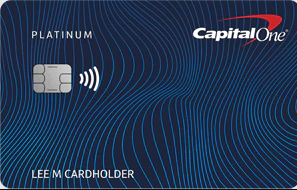
Joining Fees: $0
Minimum Security: $49, $99, or $200
APR: 28.49% variable APR
Annual Fee: $0
Our Rating: 4/5
In a nutshell: Capital One Platinum Secured Credit Card offers credit lines equal to the security deposit made by the customer. Capital One reports to all three major credit bureaus. Consequently, using this card and paying on time can help a customer to build their credit score and history over time. Card members can use the secured card responsibly and over time can be eligible for unsecured cards from Credit One. There are no international transaction fees, no hidden charges, no authorization charges, and no card replacement fees. Capital One reviews the credit line of a customer in as little as six months.
#2 DiscoverIt Secured Credit Card
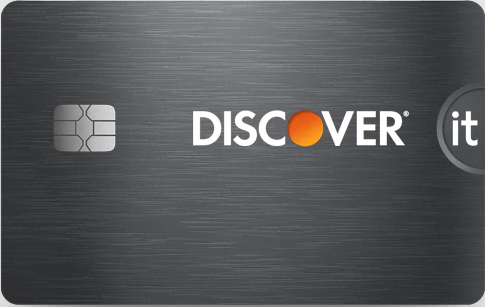
Joining Fees: $0
Minimum Security: $200
APR: 26.74% variable APR
Annual Fee: $0
Our Rating: 5/5
In a nutshell: DiscoverIt Secured credit card requires a minimum $200 refundable deposit and offers the credit lines equivalent to the deposit. This card provides 2% cashback on fuel and restaurant and 1% cashback on other purchases. Discover also offers unlimited cashback matches for the first year.
Meanwhile, if a customer has a good payment history of six months, they will release the deposit. Additionally, this credit card also reports to the three major bureaus and helps build a credit score. This card offers one of the fastest six months upgrades to an unsecured credit card. Finally, the customer has to ensure a timely payment across their credit cards and on-time payment history.
#3 Bank Americard Secured Credit Card
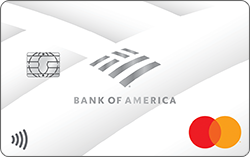
Joining Fees: $0
Minimum Security: Minimum of $200 and a maximum of $5,000
APR: 25.74% variable APR
Annual Fee: $0
Our Rating: 3/5
In a nutshell: Bank of America’s Americad secured credit card offers a good choice to customers. With a minimum deposit of $200 to a maximum of $5,000, this card offers the users option to get deposits back if they are current on their payments. Americad Secured card products do not offer new account bonus offers, like a statement credit. This card also does not offer any introductory APRs.
#4 CapitalOne Quicksilver Secured Cash Rewards Credit Card

Joining Fees: $0
Minimum Security: Minimum $200 security deposit
APR: 28.49% variable APR
Annual Fee: $0
Our Rating: 4/5
In a nutshell: Capital One Quicksilver Secured Cash Rewards Credit Card is a good choice of credit card for people with fair credit. This card offers a 1.5% cash reward back for every transaction. As compared, to other secured credit cards, this is a credit card with a $0 annual fee and the possibility of a reward.
#5 Citi Secured MasterCard
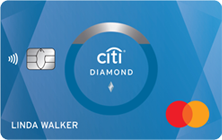
Joining Fees: This credit card has a $0 joining and also a $0 annual fee
Minimum Security: Minimum $200 deposit to get this Citi Secured Mastercard
APR: 26.24% variable APR
Our Rating: 3/5
In a nutshell: Citi offers a secured MasterCard with a $200-$2,500 deposit. Against this deposit, they provide a matching credit limit. Citi Bank reports monthly to all three credit bureaus. This MasterCard offers account protection features like fraud alerts.
They also offer a free monthly FICO score visible online in the Citi account. Also, this card applies a hefty fee of 3% on foreign transactions. The biggest drawback of this card though is that it does not offer any rewards or cashback.
#6 U.S. Bank Cash+ Secured Visa Card
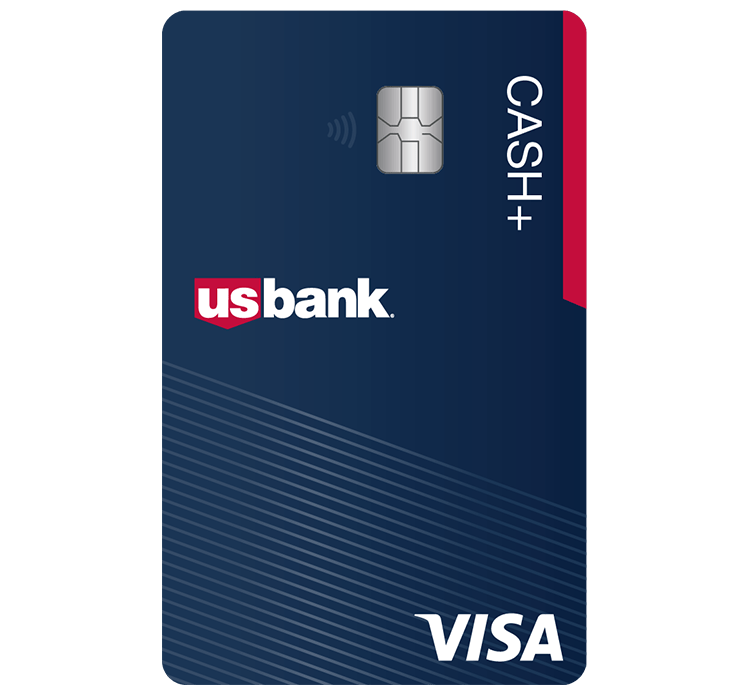
Joining Fees: This credit card has a $0 joining and also a $0 annual fee. But this credit card charges a 3% balance transfer and a 3% foreign transaction fee.
Minimum Security: US Bank Cash+ Secured Visa Card requires a deposit of $300 to $5,000
APR: 29.49% variable APR
Our Rating: 5/5
Rewards: Cardmembers earn 5% cash back on combined purchases in a quarter on 2 selected categories. This cashback is limited to the first $2,000 purchases. They can also earn a 5% cashback on pre-paid travel booked directly through the Rewards Travel Center.
Card members earn 2% cash back rewards on an eligible everyday category (Groceries, restaurants, EV charging, and gas stations). Finally, they can earn 1% cash back on the rest of their purchases.
In a nutshell: The best advantage of the US Bank Cash+ credit card is the rewards one can get on a secured credit card. Usually, secured credit cards do not provide any rewards as they help build credit scores. On the other hand, this credit card helps users not only build credit over time but also win cash rewards in their favorite categories. Cardmembers can pay bills on time and build their credit score. They can graduate with US Bank Cash+ Visa Signature card. On their graduation, they get the security deposit back.
This credit card also offers other rewards from the US Bank like Zero fraud liability. These credit cards are contactless and can be used for all contactless payments. Another, advantage of this credit card is Mobile Wallet. Members can add their credit cards to mobile wallets like Apple Pay for payments.
Disadvantages of secured credit cards
As per the above section, we know the advantages of Secured credit cards. But these cards also have some drawbacks that should be considered when applying for these secured credit cards.
1. High fees
Secured credit cards levy higher fees as compared to traditional credit cards. These fees may include an annual fee, a security deposit fee, and a processing fee. This can make it more expensive to open and maintain a secured credit card account.
A secured credit card account has a specific use case for building a credit history for users with bad credit scores. But a user should always weigh advantages in comparison to high fees. Once, a user has achieved the goal they should switch to a regular credit card.
2. Limited credit line
The credit available on a secured credit card is limited to the amount of the security deposit. This means that if a user deposits $500 with the bank, their credit limit will also be $500.
This can be problematic if the cardmembers need to make a large purchase. Further, the users can’t build up their credit by using a larger credit line. A secured credit card can also be a good card for beginners.
3. No rewards on secured credit cards
Traditional credit cards offer rewards programs, such as cashback in form of a percentage or points. Users collect these reward programs for using the card. On the other hand, secured credit cards often do not offer these types of rewards.
4. Not a long-term solution
While secured credit cards can be a good option for building or rebuilding credit, they are not a long-term solution. Eventually, a customer will need to transition to a normal credit card in order to continue building their credit and access more credit lines.
5. Interest rates
Secured credit cards may have higher interest rates than traditional credit cards. As these cards are for people with fair or bad credit, the banks or credit card companies may put higher interest on the amount. Some secured credit cards may not offer any grace or delay period. It is important to carefully read the terms and conditions of a secured credit card before applying. Always understand the interest rates and fees associated with the card before applying.
Finally, it is important to carefully consider the above drawbacks before deciding to open a secured credit card account.
In conclusion, a secured credit card is in fact great financial instrument to build a credit history or recover from a bad credit score. But as soon as you have rebuilt your history, its better to switch to a normal rewards credit card.
